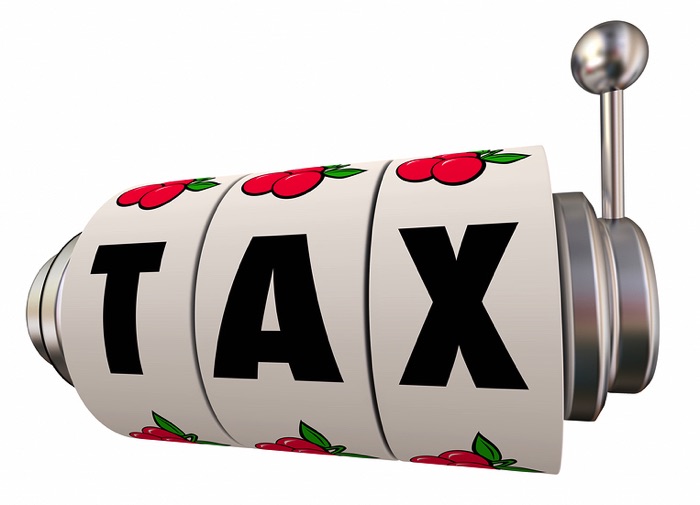Uk Online Gambling Point Of Consumption Tax
- Uk Online Gambling Point Of Consumption Tax Rate
- Uk Online Gambling Point Of Consumption Tax Credit
- Uk Online Gambling Point Of Consumption Tax Calculator
- Uk Online Gambling Point Of Consumption Taxable
Countries pay no UK gambling taxes. 1.2 At Budget 2012, the Government announced that gambling taxes in the UK will be reformed so that remote gambling is taxed on a “place of consumption” basis. With a place of consumption tax basis, remote gambling operators will pay tax on the gross gambling profits. They introduced the Point of Consumption Tax (POCT). According to this tax, a casino company must pay the tax according to the country their players are living in. This means that. In the UK, new regulations have been introduced by the UK Gambling Commission in 2014. In addition, a point of consumption tax (POC) called the remote gaming duty (RGD) of 15% has been introduced by HMRC from 1 December 2014 and is payable on all bets made by UK customers irrespective of where the online operator is located. UK – UK introduces Point of Consumption tax for online gambling By Phil - 1 December 2014 The UK’s rules for General Betting Duty (GBD), Pool Betting Duty (PBD), and Remote Gaming Duty (RGD) changed from December 1 2014. As of 2014, when the Gambling (Licensing and Advertising) Act was introduced, all offshore betting sites wanting to supply UK customers must pay 'Point of Consumption' tax and acquire a UK Gambling.
Those who gamble, especially those who are very new to it or, conversely, those that do it an awful lot, often wonder if there are any tax implications involved with gambling. The short, simple and wonderfully sweet answer is that no, there is no tax at all to pay on either gambling winnings or stakes in the UK (if you are not based in the UK please check your local jurisdiction).
This was not always the case, you might be unsurprised to hear, as the government is never one to miss a chance to squeeze an extra few quid out of us when they can. Betting shops were legalised as part of the liberal mood that swept the country during the 1960s but a tax was levied, either on the stake or winnings (as decided by the punter prior to bet placement). This was charged at 9% but was abolished by Gordon Brown in the March budget of 2001, with the changes coming into effect on January 1st 2002.
Uk Online Gambling Point Of Consumption Tax Rate
Taxing Offshore Betting Sites
The then Chancellor was concerned that the country was losing revenue – not to mention jobs – to offshore gambling sites which people could access via their phones or the internet. Many of the big UK brands had moved offshore where they could take bets without the punters being taxed and Brown’s move was designed to stop that. The tax on the gambler was replaced with a 15% levy on the gross profits of bookmakers and since that momentous day over 10 years ago there has been no tax at all for punters to pay no matter how much they win from gambling.
This has had many ramifications and one is the growth of financial betting as an alternative to conventional investment mechanisms, the former offering tax free winnings, the latter subject to standard tax laws. It has also made UK-based bookies and betting shops far more competitive and has been instrumental in the growth and success of the UK gambling industry.
Follow up legislation further strengthened the domestic market by levying the same 15% tax that UK-based companies face against those based offshore. Remote gambling operators with UK customers currently benefitting from their bases in offshore havens such as Gibraltar and the Isle of Man now have to pay 15% tax on their operating profits. It was estimated to raise around £300m annually for the government and came into force in December 2014.
FOBT’s Stakes Down, Online Taxes Increase to 21%
In 2019, and after a long drawn out battle in both the media and houses of commons, the maximum stake permitted on Fixed Odds Betting Terminals found in high street bookmakers was reduced to £2 – a huge cut when you consider the fact that the previous limit had been £100.
Uk Online Gambling Point Of Consumption Tax Credit
Whilst the cut in stake was primarily intended to help protect vunerable and problem gamblers it also had the knock on effect of reducing the tax revenue generated by the machines. To compensate for this the UK Government chose to increase the 15% tax rate to a whopping 21%.
Despite the increase, crucially, this has no real impact on us as punters. To go back to the very simple answer as the beginning of this piece – gambling profits and stakes in the UK are still totally tax free.
All countries and governments have their own online gambling tax policies and legislation so we need to look at this question from a global perspective. Firstly we’ll cover the situation in the UK and following that look at how things may differ in the rest of the world.
Do you have to pay tax on your gambling winnings?
UK Gambling Taxes
Key Points

- All winnings either online or offline are tax free!
- Any betting tax abolished in 2001 by Gordon Brown.
- Tax used to be on bookies but they passed to punters.
- Bookmakers must now pay 15% POI tax but not punters.
- POI tax on any games of chance increased from 15% to 21% but again not for punters.
In the UK any and all winnings from gambling – either online or at betting shops – are entirely tax free and do not need to be declared as part of any tax return.

This has been the case since the then Chancellor of the Exchequer Gordon Brown’s budget of 2001, when he abolished Betting Duty which had stood at 6.75%. That duty was removed in an attempt to persuade bookmakers not to move their operations overseas and therefore take jobs and revenue away from the UK economy.
All of that is not to say that there is no tax involved when it comes to gambling in the UK, however, and there is a ‘point of consumption’ tax related to the activity. This does not affect punters themselves, though, and will be dealt with separately further down this page.
Uk Online Gambling Point Of Consumption Tax Calculator
Will the situation ever change? Generally speaking there is little chance that this situation will be reversed, either, as the UK tax system is simply not built in such a way that taxing gambling winnings would be viable. This is the case as it is fairly standard within the system that if tax is levied on the income or profit made through an activity, then there must also be an allowance made against losses through the same activity.
With gambling being an activity where overall more losses are made by punters than winnings, therefore, such a change in the tax legislation would cost the UK government revenue. As a result, it is quite simply not something which would be considered. Your betting, casino, slot machine, poker and bingo winnings are yours to keep tax free.
Uk Online Gambling Point Of Consumption Taxable
What About Professional Gamblers?
It may seem logical that the tax situation would be different for professional gamblers than it is for occasional punters. When it comes to pure winnings from betting, however, that quite simply is not the case. As we have discussed above these winnings are not taxable and this remains true even for a ‘professional gambler’. That is because HMRC do not recognise professional gambling as a taxable trade.
In fact, within their most up to date ‘Business Income Manual’, HMRC clearly define their position on professional gambling:
‘The fact that a taxpayer has a system by which they place their bets, or that they are sufficiently successful to earn a living by gambling does not make their activities a trade.’ BIM22017
Gambling winnings, therefore, remain free of tax regardless of whether they make up an individual’s main source of income. Where the situation can get a little more complicated, however, is in the case of income related to gambling but not actually direct winnings from gambling. Appearance fees paid to poker players for playing at certain tournaments, for instance, represent payment for a service provided to the tournament organisers and as such may be taxable.
Away from the UK, too, tax laws and legislation do differ and it would benefit a professional gambler outside of the UK to research the specific rules and regulations within their own country.

UK Point of Consumption Tax
As we mentioned earlier, Betting Duty for gamblers was abolished in 2001 and was at that time replaced by a 15% tax on gross profits for bookmakers and gambling providers. That tax was initially charged on a ‘point of supply’ basis, meaning that if the bookmaker or company were not based in the UK, then they were not liable. This situation has more recently changed, however.
From the latter part of 2014, the tax on bookmakers’ profits was changed to a ‘point of consumption’ tax by a combination of the Gambling (Licensing and Advertising) Act 2014 and by the introduction of ‘Remote Gaming Duty’. This means that regardless of where they themselves are based, providers must pay a 15% duty on any bets placed by UK customers.
In the 2018 budget chancellor George Osborne announced that the point of consumption tax would rise from 15% up to 21% for all games of chance but sports betting would remain at 15%, for now.

Gambling Taxes In The Rest Of The World
| Country | Taxes |
|---|---|
| Austria | No |
| Australia | No |
| Australia | No |
| Belgium | No |
| Bulgaria | No |
| Canada | No |
| Czech Republic | No |
| Denmark | No |
| Finland | No |
| France | 2% on poker cash pots, 7.5% on sports (+1.8% levy) and 7.5% on horse racing (+8% levy) |
| Germany | No |
| Greece | No except lottery at 10% |
| Hungary | No |
| Ireland | Bookies pay 1% on all bets – not winnings. |
| Italy | No |
| Kenya | No – bookies must pay 7.5% on their winnings. |
| Latvia | 25% |
| Luxembourg | No |
| Macau | 40% |
| Malta | No |
| Nigeria | 20% |
| Netherlands | No expect lottery at 29% above €454 |
| Portugal | No expect lottery at up to 35% |
| Romania | 1% up to 66,750 RON, additional 16% of surpassing margin up to 445,000, additional 25% of surpassing margin over 445,000 RON |
| Slovenia | No expect lottery at 50% if more than €4,000 |
| Spain | No but must declare winnings as income for taxation |
| Sweden | No |
| South Africa | No except 6% on horse racing. |
| UK | No |
| USA | 25% |
As the above table shows, where various types of gambling are legal there are a variety of different attitudes towards taxation on winnings from those forms of betting. If your country is not listed then it’s likely gambling is not strictly legal and there is therefore no taxation laws.